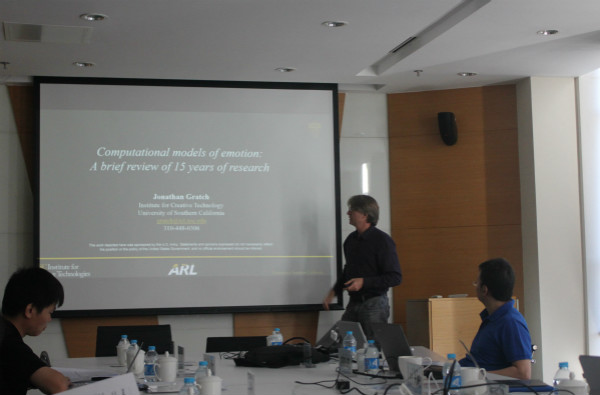The First International Workshop on Advanced Multimodal Affective Interaction, AMAI 2015 was held in Institute of Automation, Chinese Academy of Sciences on September 25. AMAI 2015 was organized by the Human Machine Speech Interaction Group, National Laboratory of Pattern Recogniton, Institute of Automation, Chinese Academy of Sciences and hosted by Prof. Jianhua Tao., The main participants include: Prof. Jonathan Gratch from the University of Southern California, Prof. Lei Xie from Northwestern Polytechnical University, Prof. Zhiliang Wang from University of Science and Technology Beijing, Prof. Hu Bin from Lanzhou University, Prof. Feng Tian from Institute of software, Chinese Academy of Sciences, and Prof. Yijiang Chen of Institute of Computing, Chinese Academy of Sciences. Attendees all brought wonderful academic reports.
Emotional factors play a fundamental role in human-computer interaction, and emotional interaction ability affects the quality of human-computer interaction. Recently, multimedia computing and affective computing have been widespread concerned in academic circles. Multi-modal emotional interaction involves many aspects, such as recognition of the user's emotional state based on multi-modal (such as audio and video), computational modeling of emotional state and behavior, multi-modal emotional expression and emotional dialogue model, etc. AMAI2015 focused on "real-time adaptive interactive technology of real-world environment". AMAI2015 set up an important platform for domestic scholars in this field to exchange academic and share results with international counterparts.
After the workshop, attendees visited the multimodal virtual interactive environment, etc.
AMAI is a satellite workshop of the sixth International Conference on Affective Computing and Intelligent Interaction, ACII 2015. ACII was initiatedby the Institute of Automation, in 2005, and held every two years. Now, ACII is the most influential academic conference in the field of international affective computing and related fields, the annual number of participants is close to 200 people. The conference brought together many well-known scholars on affective computing, human-computer interaction, psychology and other research fields.


